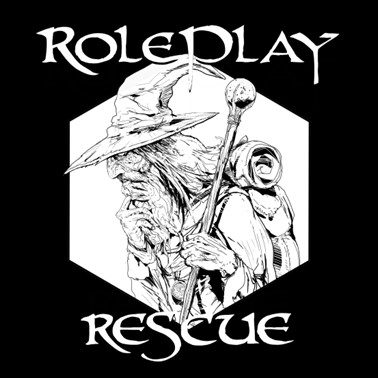The thing I hate most about creating a new character is when, at the end of the process, the game basically says, “Here’s some currency, here’s a chapter on equipment, go buy what you need.”
Making me pick equipment – especially with a new game – is a recipe for annoyance and disappointment. How do I know what is best to buy? What if I miss some key piece of gear? Do you really want to paralyse me with hundreds of choices before we even begin play?

In my own games, I’ve come to value a couple of different processes: either you give the characters a small selection of pre-designed equipment lists for a fixed cost, or you give them a set of prescribed gear based around their background.
This issue truly came home to me when I first began to run Open Table games. When you have drop-in players who need a character inside 15 minutes, you don’t have time to do shopping lists. Quick choices means you need short lists (5-9 items is optimal) and a clear sense of what the character might need.
For a dungeon game, I took to using “Ye Fast Pack” sheets from the back of Module B4: The Lost City. This gives the aspiring D&D Basic player a clear set of choices which also happen to work well in play. They are customisable to fit Class needs but quick to handle.
In recent weeks, I’ve enjoyed the ACKSII method of having the player roll on a Class-based table and delivering them a set of gear pre-selected and ready for play. It’s fast and effective. Players can go buy extra stuff once the game is underway with their loot.
But, let’s be honest, these examples of the exceptions rather than the norm. Most game designers opt for giving us a long list of gear and telling us to go spend an arbitrary amount of currency. I typically come to a grinding halt and want to bail when this happens.
The biggest GM mistake I make in trying to get a game up and running quickly is to forget to offset this weakness in most games by designing an alternative. Of course, if we’re new to the game as well, it’s not a given that even the GM will know what to recommend. That’s why game designers need to do the thinking for us.
Game on!

I like “shopping.” Most of my players have liked “shopping,” too. Although I’ve had a couple who would just want to “get on with it.” For proponents, it’s part of chargen, and also (an enjoyable) part of the game. I like seeing what different players will feel is necessary, and I like to watch if they attempt to coordinate purchases. I mean, much of old-school D&D consists of various types of resource management. Choosing appropriate, affordable gear and coming up with a way to transport it all can be quite the challenge. OTOH for time-sensitive sessions I like the idea of the pre-packaged packs. Never actually used the idea in a game though.
LikeLiked by 1 person
I’m torn on this. For most characters that I make for myself, I see choosing gear as another opportunity for envisioning the character. What a person owns and chooses to take with them can tell a lot about their background and the kind of person they are. I like to be able make a few distinctive gear choices that characterize my PC.
On the other hand, if you want to get to playing quick, and also want to avoid missing something necessary and fear being punished for it once the game starts, it’s good to have the option to grab a ‘basic gear’ package.
I love that I can open one of the GURPS Tech books and choose gear from a comprehensive list of alternatives that really distinguishes my character, but it’s also good to have the Loadout packages in Delvers to Grow.
LikeLiked by 1 person
I remember telling players to forget about encumbrance and shopping, just choose a dozen items in addition to their appropriate arms/armour that they think they might need to explore a hill/forest wilderness
It took me three sessions to notice one bloke had written “10′ ladder” on his character sheet….
LikeLiked by 1 person
[…] time-consuming tasks (like gear shopping) that can delay the start of […]
LikeLike